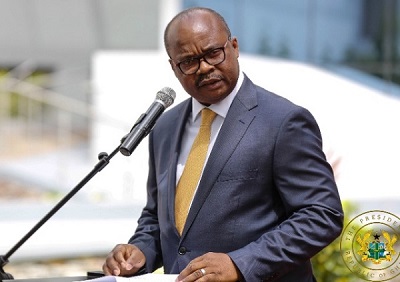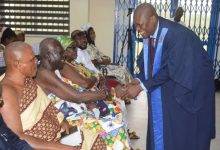Rural and Community Banks must meet minimum capital requirement by end of 2021-BoG Governor

Rural and Community Banks must meet the minimum capital requirement of GH¢1 million by the end of 2021, Governor of the Bank of Ghana (BoG), Dr Ernest Addison, has said.
That, he said, had become necessary for the Rural and Community Banks to “maintain the increased capital unimpaired.”
Addressing the 40th anniversary of the Akuapem Rural Bank Limited at Mamfe Akuapem at the weekend, he said a lot had been achieved within the sector for the past four decades.
“As we seek to improve the regulatory and operational prospects of rural and community banks, we must admit that a lot of progress has been made within the sector. From 30 rural banks in the 1980s, we now have 145 of such institutions with a branch network of about 851. The increased number of rural banks has been accompanied by increased customer reach, technology deployment, as well as improved delivery of financial services within the local communities,” the Governor said.
Dr Addison indicated that as of the end of June 30, 2021, the overall profitability of the rural banking sector was positive, and the sector had recorded an annual growth of 27.4 per cent in total assets, which amounted to GH¢6.5 billion.
He indicated that rural and community banks continued to be drivers for financial inclusion and socio-economic development in Ghana.
“It was envisaged as a unique business model where rural banks thrived based on community empowerment, community ownership and community participation in governance,” he said.
Dr Addison said the first rural bank was established in Agona-Nyakrom, a farming community in the Central Region in 1976, and a year later, a second rural bank was established in Biriwa, a fishing community also in the Central Region.
He said after these two rural banks, several others were licensed, including the Akuapem Rural Bank in 1981, which was the third for the Eastern Region.
Dr Addison said the BoG had introduced an Online Regulatory Analytics Surveillance Systems (ORASS) to help streamline data collection, maintain dynamic corporate profiles on regulated financial institutions, and move licensing and related authorisation onto an electronic platform without the need to physically visit the premises, thereby easing the supervisory and regulatory burden on financial institutions.
He said an important requirement for successful integration with ORASS, especially in the submitting of prudential returns, was the requirement to use application programming interface (API) to perform machine-to-machine data transfer.
The Governor said the BoG as part of the digital agenda of government was piloting a digital currency to promote ‘cashlite economy,’ and promote financial inclusion.
“The E-Cedi, which is the first general-purpose Central Bank Digital Currency in Africa, will complement and serve as a digital alternative to physical cash, in line with the Government’s ‘Digital Ghana Agenda,” he said.
He said the E-Cedi would be tested in trial phases with banks, payment providers, merchants, consumers and other stakeholders for a nationwide rollout as it will present an opportunity to build a robust, inclusive, competitive and sustainable financial sector.
Dr Addison entreated all rural and community banks to collaborate with ARB Apex Bank to leverage the opportunities available with digitisation within the payment ecosystem.
BY KINGSLEY ASARE




